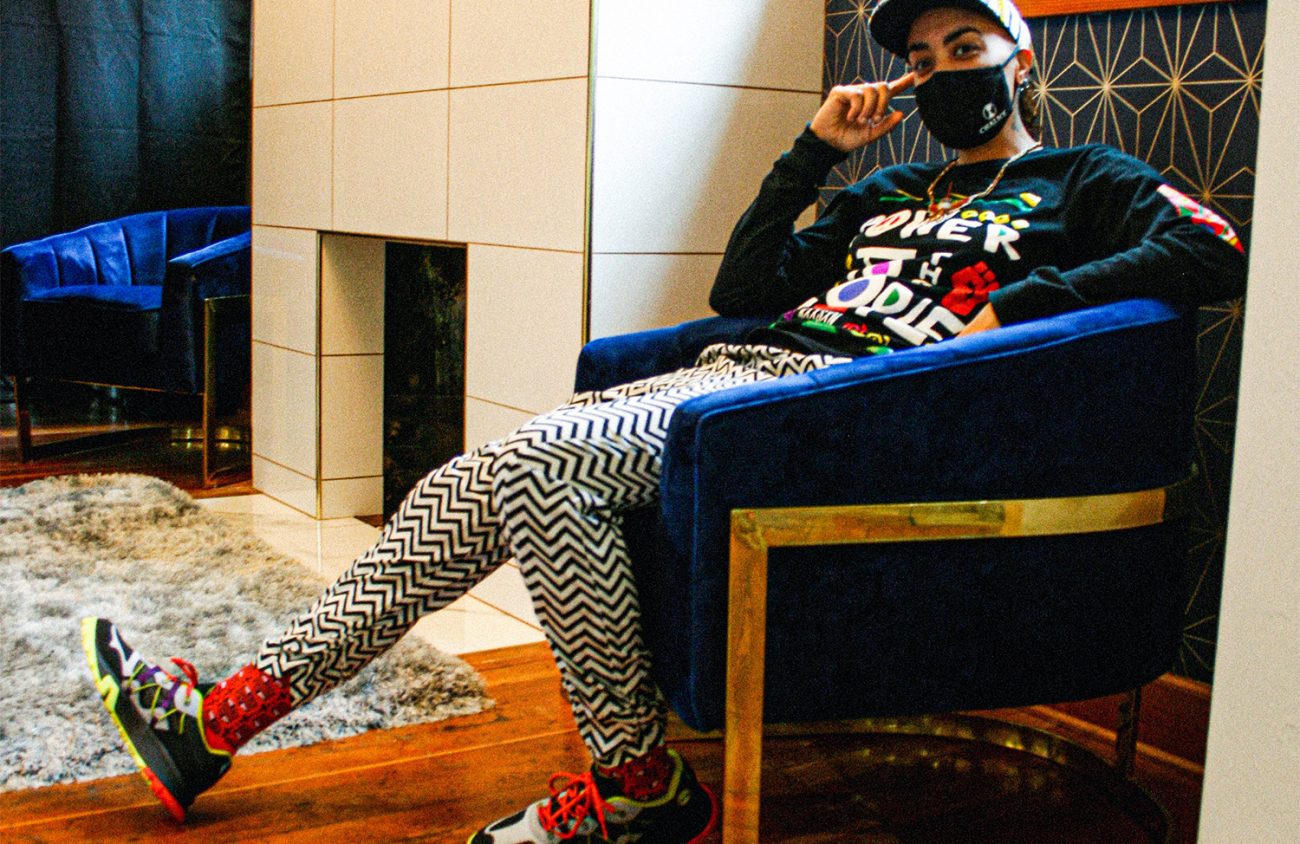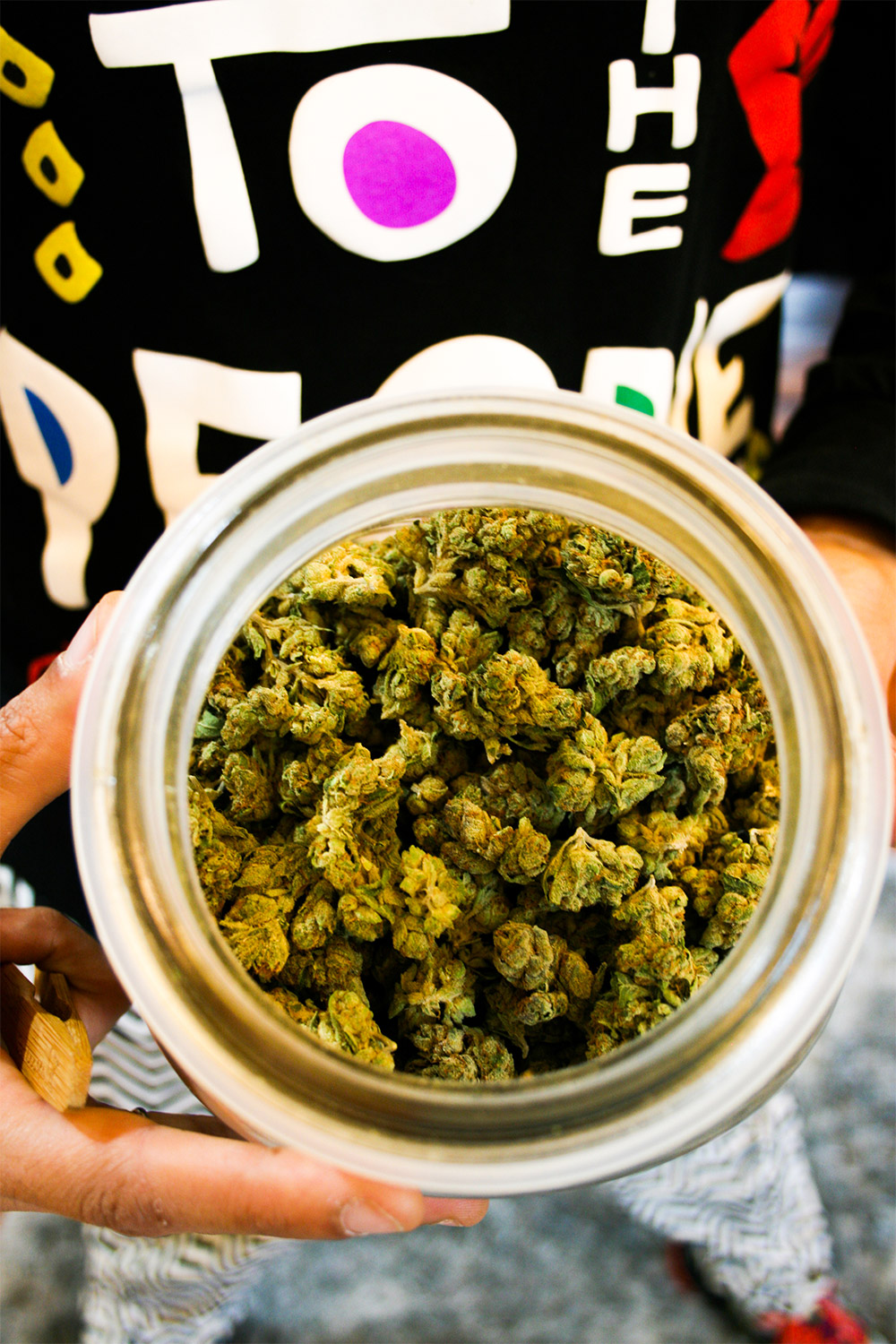When Oregonians voted to legalize recreational cannabis in 2014, they kicked off a titanic struggle for market dominance of the cannabis market and consumer dollars.
The U.S. Census Bureau in 2017 estimated there are 123,365 Black, Indigenous and People of Color, or BIPOC people in Oregon, making up only 3 percent of the overall population, a legacy of Oregon’s racist past. As a result, the opportunities to invest in this industry have mainly gone to white men, who have generational wealth and land to build the appropriate structures.
In many American cities where cannabis is not legal we see BIPOC people systematically targeted for arrests for possession. According to New York City arrest data in 2019, NYC police officers arrested 1,436 people for cannabis use, and 1,349 of those people identified as Black or Hispanic. Also, according to the American Journal of Preventive Medicine, a 2019 study showed Black-identifying people in Oregon are 25 percent more likely to be arrested, while Native Americans are 250 percent more likely.
In order to gain a perspective on BIPOC people in the state, Eugene Weekly interviewed three local people and asked them their perspective. Despite the gloomy arrest stats, it appears that for many, regardless of the perceived racism, the cannabis industry in Oregon is mostly an open and accepting environment, full of opportunities and colorful characters.
Kingsley Strangelove is a local Eugene DJ and father who moved into Oregon specifically to work in the cannabis industry.
While Strangelove is the only BIPOC person in his place of work, he says he hasn’t had any racist experiences at his current, or any past jobs. However, he is concerned about lack of balance and transparency in the industry.
“If you’re looking to find balance in this industry you won’t find it,” Strangelove says. “Most of the people who manage and own these farms and dispensaries are Caucasian. Also, politically, when you look at how many BIPOC people have been and still are incarcerated for the plant, it doesn’t seem like a fair balance.”
This year during the lockdown, the industry was considered an essential business, allowing people to continue paying their bills and not have many of the worries a lot of people had, which helps the industry continue to grow by not stalling the competition between companies.
Strangelove likens the industry to boxing. “It’s similar to boxing in that everyone has a similar product, but some products just happen to knock you out of the ring.”
EW next went to Elev8, a Black-owned dispensary on 14th and Oak, and spoke with employee Sasha Tuckey. She is an Oregon native, born in Portland and raised in Roseburg.
She says, “I was always fascinated since I can remember, and as soon as I got a job in a garden I took it. The rest is history.”
While she says she feels no racial bias in the industry, Tuckey feels it’s really hard for women to get the same opportunities as men. “It was really hard to assert myself at first as a female. It’s very male dominated, which makes it hard to find a place to feel comfortable. We have a group called Women Leaders in Cannabis, which is great, and it helps to even the playing field.”
“Most women trim or work in sales,” Tuckey says. “But rarely do you see a woman in a master gardener position at the farms. I’d like to see more women managing from seed to harvest.”
However, she says she thinks it’s a great industry, and the stability it provides, as well as the opportunity to be expressive, is excellent. “Be yourself, and add your own creative flair. Find your niche and express yourself creatively. The sky’s the limit.”
Julian Outlaw is a local musician originally from Houston, Texas. He first moved to Tacoma, got a job at a dispensary there and knew then that cannabis was his passion. Similar to Strangelove and Tuckey, he has not faced any direct discrimination. However, he says he feels the industry is too hard to get into.
“It’s borderline discrimination,” Outlaw says. “It works against people who oftentimes have the knowledge, but not the capital. I just want to see some programs helping people get involved.”
Outlaw says he was fortunate enough to have a BIPOC manager and mentor in town who helped him learn the craft, local DJ Justin Huckabay, aka DJ Low Eagle. Huckabay, also being BIPOC and from the South, put Outlaw under his wing to show him the tricks of the trade, and they both work at Cannalife Solutions.
Outlaw’s advice to young people interested in working in the industry: “Don’t be afraid to stand up for yourself. Every question only has two possible answers, yes or no.”

